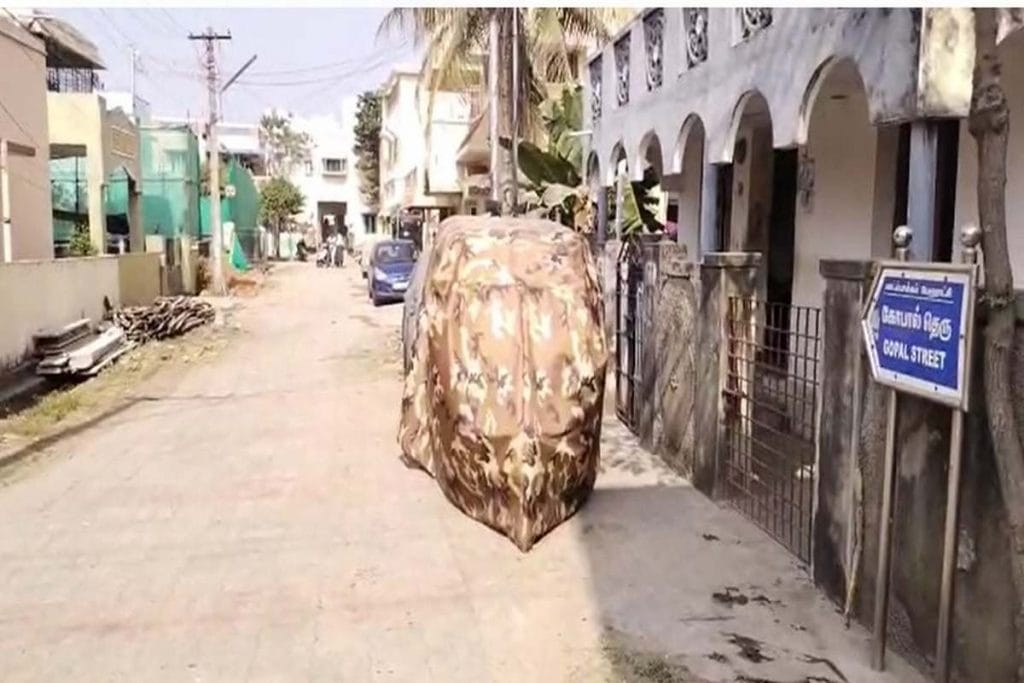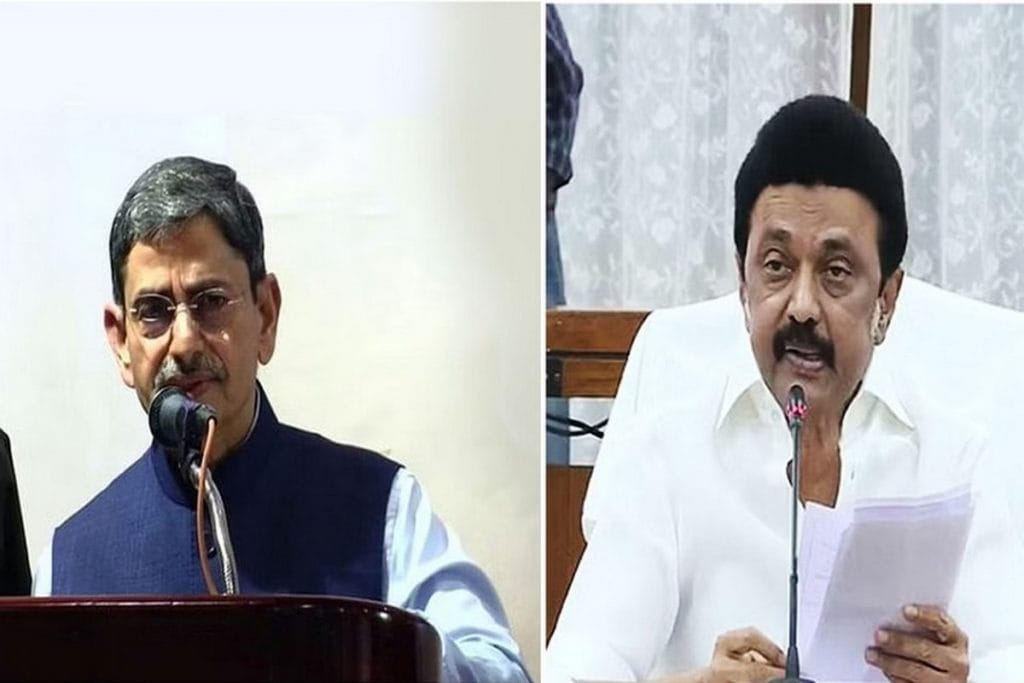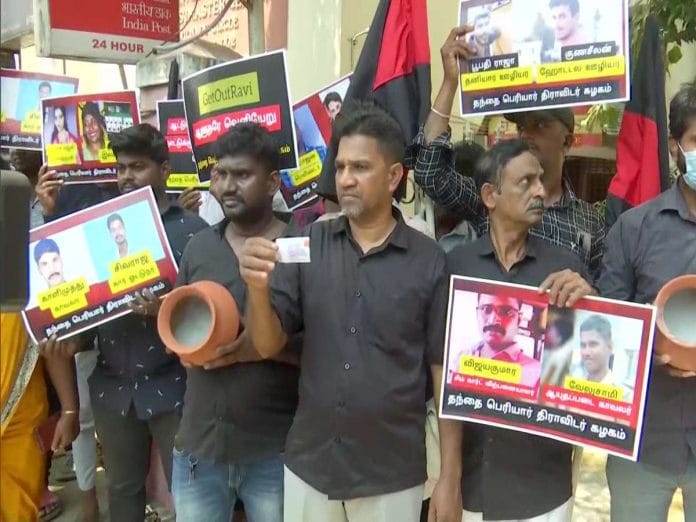Chennai: On 3 March, 36-year-old Vinoth Kumar took a day off from his job as a medical representative in Chennai. He spent some time with his mother, recalled neighbours, even asking her to cook some snacks for his children for when they returned from school. Hours later, his wife found his body in a room, hanging from a noose made out of one of her saris.
In his purported suicide letter, Vinoth reportedly wrote that online rummy had mired him in massive debt and ruined his life. He also reportedly requested the Tamil Nadu government to ban online gambling so that other lives could be saved.
Over the past three years, more than 40 people in the state have died by suicide after losing large sums of money in online gambling, claimed Dravida Munnetra Kazhagam (DMK) MP T.R. Baalu, while speaking to ThePrint.
However, on 8 March, just five days after Vinoth’s death, Tamil Nadu Governor R.N. Ravi refused to give his assent to a bill that the state assembly had passed on 19 October last year to ban online gambling.
When returning the Prohibition of Online Gambling and Regulation of Online Games Bill, the governor cited the Tamil Nadu government’s lack of “competence” to legislate on the matter. The M.K. Stalin-led DMK government has claimed otherwise and plans to pass the bill again in the upcoming assembly session.
The matter has snowballed into a tussle between the governor and the state government, and has also led to protests in the state.
This Thursday, several members of the pro-Dravidian outfit Thanthai Periyar Dravidar Kazhagam (TPDK) were arrested for trying to send ashes, purportedly of those who had died by suicide, to the Raj Bhavan.
“Over 40 people have died and the governor has acted in a manner that is in favour of online gambling and we condemn this,” TPDK general secretary K. Ramakrishnan told ThePrint.
The governor’s refusal to give his assent to the bill has also raised questions about whether he is “acting under pressure” from the gaming lobby. The E-Gaming Federation has opposed a complete ban on online gaming in Tamil Nadu.
Meanwhile, state BJP president K. Annamalai has claimed that while his party opposes online gambling, the bill is “faulty” and the governor should not be forced to give assent.
ThePrint reached Governor Ravi’s office on phone for a comment on the matter. A representative, requesting anonymity, said that the governor has sent the bill back with his recommendations, which the state government needs to address. He refused to answer any further questions.
Here is a look at how online gambling has become a major issue and a political hot button in Tamil Nadu.
Also read: Governor vs govt not new in India but Constitution doesn’t guarantee a solution
‘Lives lost, families broken’
Vinoth Kumar and his family used to reside on the first floor of a house in Gopal Nagar, a neighbourhood in the Chennai suburb of Madambakkam. It’s currently empty — his mother, wife, and children have not been there since the death, said neighbours.
The neighbours, however, recounted the incidents on the “tragic Friday” of Vinoth’s death.
They said that a few hours after Vinoth’s children, 7 and 4, reached home from school, he locked himself in his room on the pretext of work.
When his wife Lalitha returned home from work, she grew alarmed after he did not respond to her repeated knocks, and sent her children to call the neighbours. Two neighbours then rushed to the house and broke down the door.
“By the time we reached, he had already died,” claimed a 70-year-old neighbour, one of the first to be on the spot. Vinoth had hanged himself with his wife’s sari, the neighbour added.

The police have registered a case of unnatural death. A police officer at Selaiyur police station who is privy to the investigation said that Vinoth was in a financial crisis.
“He had taken a loan to the tune of Rs 20 lakh from various sources,” the officer said.
According to neighbours, Vinoth was known to be addicted to online rummy and his wife had even taken him for counselling six months ago. This apparently helped him stay on course for a month or so, but it is believed he lapsed back into the habit.
Around 160km from Chennai, 58-year-old cycle mechanic Ravi lives in a modest home in Gudiyatham, a municipality in Vellore district. Last April, Ravi lost his only son Ashok, 32, to suicide.
Ravi told ThePrint that Ashok had a bachelor’s degree in computer applications, but jumped various jobs before deciding to work at the family’s cycle shop. A lot of Ashok’s time also went into online gaming.
“I kept telling him to not play these games. I told him no one really wins money,” Ravi claimed.
Ashok would try to abstain, but would keep getting sucked back into online gambling, his father said. Struggling with his own health issues, Ravi said he “couldn’t keep a close watch on him”.
Ashok allegedly died by self-immolation on the first floor of the family home. He had a debt of Rs 1 lakh and had sold three gold sovereigns belonging to his wife.
Ravi said that since then he has repaid all of Ashok’s debt and has brought the same amount of gold for his daughter-in-law.
There are also accounts of lives disrupted by loan sharks and bank debt, following online gambling.
Balaji Gajendran, a 36-year-old Chennai resident, told ThePrint that his cousin had incurred a loss of Rs 10 lakh due to online gambling.
“We did not know that he was into online gambling till bank officials started sending people to demand repayment,” Gajendran claimed.
The family eventually relocated owing to the “embarrassment” and the man’s wife walked out of the marriage.
“It became an addiction… he told us that he wanted to earn back what he lost, so kept going back, playing over and over,” Gajendran added.
Successive governments in Tamil Nadu have tried to address the issue.
Push for ban, from AIADMK to DMK
In February 2021, the then All-India Anna Dravida Munnetra Kazhagam (AIADMK) government in Tamil Nadu amended the Tamil Nadu Gaming Act, 1930, banning online games with stakes or prizes, including rummy and poker.
However, in August that year, the Madras High Court quashed the law as unconstitutional, claiming that it could have the “most ridiculous and unwanted” results if followed in letter and spirit.
The court contended that the Tamil Nadu Gambling and Police Laws (Amendment) Act, 2021, passed by the AIADMK government, was framed in such a way that it would effectively outlaw even physical games that came with awards or prizes. This law, the court said, could make anything from an inter-school competition to an Indian Premier League (IPL) match illegal.
The HC further argued that the state had failed to provide more than anecdotal references to suicides and a “subjective perception of the evil of addiction”, and that the law seemed to have “more to do with optics just ahead of state elections”.
However, after the DMK came to power, CM M.K. Stalin constituted a four-member committee to study the impact of online gambling.
On 27 June last year, this committee, headed by retired Madras HC judge K. Chandru submitted a 71-page report to the CM, recommending a ban on online games with stakes.
The panel said these games were addictive, did not involve any skills, and landed many in debt. It also said it was impossible to regulate such online games.
Speaking to ThePrint, Justice Chandru explained: “By design, all online games or activities are meant to be addictive and keep the user engaged perpetually. Online games typically utilise digital currency, which is practically impossible to monitor or measure.”
The committee was also of the view that online games are designed to extract money from players and to maximise profits for gaming companies.
Based on the Chandru committee’s report and inputs from stakeholders, the TN cabinet approved an ordinance to ban online gambling last September.
On 7 October 2022, Governor Ravi gave his assent to the ordinance and twelve days later, state law minister S. Regupathy presented the bill in Parliament, to ban online games, including rummy and poker.
Four months down the line, however, Governor Ravi sent back the bill.
Governor vs. state govt
Last week, Regupathy told reporters that the cabinet had decided to reintroduce the bill.
“The governor said the state assembly has no legislative competence to enact such legislation. But as per Madras HC orders, the assembly has the powers,” Regupathy said.
He added that the governor “cannot deny assent to the bill when it is sent for the second time”.
The minister said that the proposed law is under entry 34 of the state list — betting and gaming— and not under entry 33, which pertains to the broader category of sports, entertainment, and amusement.
“The governor had said entry 33 allows skilled games and denied his assent to the bill. This is unacceptable as the state has already explained the differences between online games and offline games,” Regupathy said.
Meanwhile, objecting to the governor’s stand, Baalu said that among the suicides and people “losing lakhs of rupees”, the public supported a ban.

“More than 10,735 people were contacted through public hearing and 99 per cent agreed for a ban on online gaming,” he said. “Once again TN assembly will approve the bill and resend it to the governor. This time he will have to give his assent.”
Asked about his views on the matter, Justice Chandru said he felt the Governor’s actions were “highly objectionable”. He also questioned how the governor had given his assent for the ordinance in October and had not raised questions back then.
“The issues raised by (the governor) were all on the beaten track, and have already been answered in the report of the committee that recommended a law for banning online rummy,” Chandru said.
The fact that the governor sat on the bill for four months has also led to criticism. Without the governor’s assent, the ordinance lapsed in November 2022, leading to months of opprobrium from the DMK.
In February, urging the governor to give his assent to the bill, Stalin had said: “How many more lives are needed to approve the online gambling ban?”
Last week, during his programme ‘Ungalil Oruvan’ (One Among You), where he answers people’s questions, Stalin also took a jibe at governors in non-BJP-ruled states.
“Considering their actions so far it seems the governors have only mouths not ears,” he said.
Controversy over ‘gaming lobby’
With the refusal of assent to the bill, questions have now been raised about a 5 December meeting at the Raj Bhavan between Governor Ravi and representatives of the E-Gaming Federation (EGF).
Last Friday, Tamil Nadu Assembly Speaker M. Appavu referenced this meeting and told mediapeople he wondered whether the governor has returned the bill under “pressure”.
Justice Chandru told ThePrint that he and other members of the committee had also been approached by online gaming companies.
“Certain online companies lobbied heavily to get an audience with us. I have refused to see any one of them. Some who did meet them said (the companies) tried to urge… that we should recommend regulating rather than totally prohibiting online games (with stakes),” he said
As mentioned earlier, ThePrint contacted the Raj Bhavan for comment, but a representative said the governor had not released a statement.
However, state BJP president Annamalai spoke up in defence of the governor and condemned DMK leaders’ insinuations about the EGF meeting.
“Don’t bring political differences to the office of the governor. The moment you do character assassination of the governor, it is crossing the Lakshman Rekha (limit),” he told ThePrint.
The E-Gaming Federation, meanwhile, has spoken out against a complete ban on online gaming.
Malay Kumar Shukla, secretary of the EGF, cited the Madras High Court order quashing the previous AIADMK government’s bill and said that a “complete ban on a game of skill was unconstitutional”.
“We have approached the government, the governor, and even the committee. It is not like we approached one and we don’t try meeting the other,” Shukla told ThePrint. “We are open to meeting the government and answering their questions. Let them find a solution if they believe there is a problem, and understand the nature of the problem.”
Shukla added that the EGF has been open to reasonable restrictions but a complete ban might not stand in a court of law.
As the political controversy rages, grieving father Ravi in Gudiyattam hopes that his voice can be heard too.
“There should be a ban on online gaming. We lost our child and are suffering,” he said. “No other family should have their child fall victim to this.”
(Edited by Asavari Singh)
Also read: ‘Nudes in DMs, rape threats from 14-yr-olds’: Women gamers say KYCs a start but govt must do more






